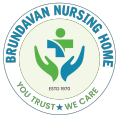Pelvic Inflammatory Disease

- Pelvic Inflammatory Disease (PID) is a serious infection of the female reproductive organs, including the uterus, fallopian tubes, and ovaries. At Brundavan Nursing Home, we understand the importance of prompt diagnosis and treatment of PID to prevent complications and preserve reproductive health. Our comprehensive approach to managing PID involves thorough evaluation, targeted antibiotic therapy, and supportive care to help patients recover and reduce the risk of long-term consequences.
Diagnostic Evaluation: We begin by conducting a thorough diagnostic evaluation to confirm the diagnosis of PID and assess the extent of the infection. This may involve a combination of medical history review, physical examination, pelvic ultrasound, laboratory tests (such as blood tests and cultures), and imaging studies (such as MRI or CT scans) to identify any inflammation or abnormalities in the pelvic organs.
Antibiotic Therapy: The primary treatment for PID is antibiotics to eradicate the underlying infection and prevent its spread. We prescribe a combination of antibiotics that are effective against the bacteria most commonly associated with PID, such as Chlamydia trachomatis and Neisseria gonorrhoeae, as well as other potential pathogens. Treatment may be administered orally or intravenously, depending on the severity of the infection and the patient’s clinical status.
Hospitalization, if Necessary: In severe cases of PID or when complications such as abscess formation or pelvic peritonitis occur, hospitalization may be necessary for close monitoring and intravenous antibiotic therapy. Our healthcare team provides supportive care and ensures that patients receive the necessary medical attention and interventions to manage their condition effectively.
Pain Management: PID can cause significant pelvic pain and discomfort. We offer pain management strategies to alleviate symptoms and improve the patient’s comfort level. This may include over-the-counter pain medications, prescription analgesics, and other pain-relieving techniques such as heat therapy or relaxation exercises.
Follow-up Care and Monitoring: Following antibiotic therapy, we provide regular follow-up care to monitor the patient’s recovery and ensure that the infection has been successfully treated. We may repeat pelvic examinations, laboratory tests, or imaging studies as needed to assess treatment response and detect any recurrence or complications.
Partner Treatment and Counseling: Since PID is often sexually transmitted, it is essential to involve sexual partners in the treatment process. We offer partner notification and counseling services to encourage partners to seek testing and treatment for sexually transmitted infections (STIs) to prevent reinfection and reduce the risk of transmission.
Preventive Measures: We educate patients about preventive measures to reduce the risk of PID and other STIs, including practicing safe sex, using barrier methods of contraception (such as condoms), and seeking timely medical care for symptoms of STIs. We also emphasize the importance of regular gynecological exams and screening for STIs, particularly for sexually active individuals.
At Brundavan Nursing Home, we are committed to providing compassionate, evidence-based care for women affected by PID. Our multidisciplinary team of healthcare professionals works collaboratively to diagnose, treat, and support patients through every step of their recovery journey, with the goal of preserving reproductive health and well-being.
